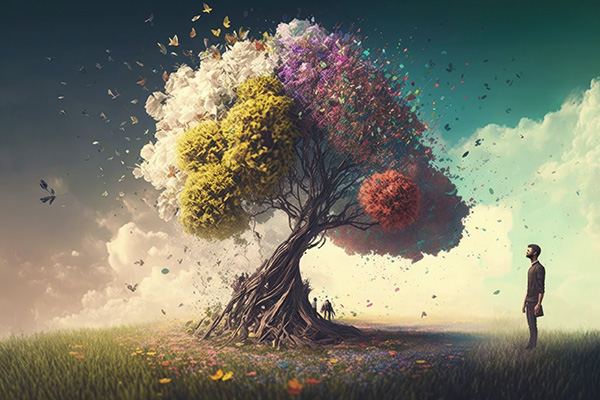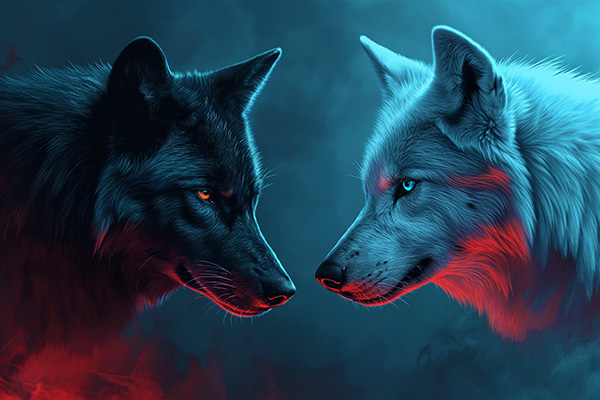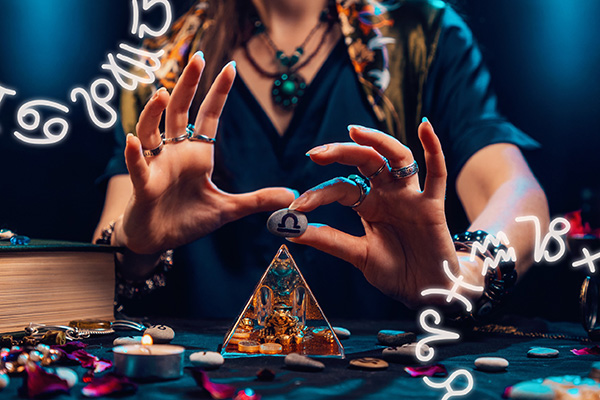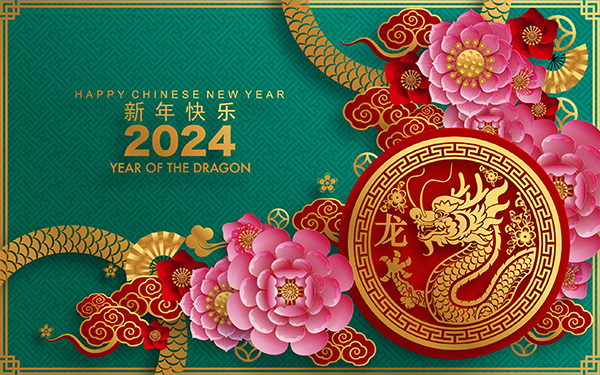traditions
Make Money The Root Of All Good!
 The desire for financial security and increased wealth often conflicts with some people’s deeply held spiritual beliefs, causing them much inner conflict and guilt. Sayings like “money can’t buy happiness,” “money is the root of all evil,” and “you can’t take it with you” don’t help either.
The desire for financial security and increased wealth often conflicts with some people’s deeply held spiritual beliefs, causing them much inner conflict and guilt. Sayings like “money can’t buy happiness,” “money is the root of all evil,” and “you can’t take it with you” don’t help either.
But what if we flipped the script? What if the path to money and wealth is also the path to peace and deeper fulfillment in our lives?
There is also the saying: “Money is a good servant, but a bad master.” What if money in the hands of kind, compassionate and conscious people is exactly what the world needs?
What if we stopped thinking of money as evil and started thinking of it simply as a tool for your spiritual growth and fulfillment? What if we began to see money as something good and benevolent that can be used for the greater good?
As spiritual beings, we chose to incarnate into this very time-space reality, fully understanding the rules of this dimension. One of the rules we understood was the need for physical survival and material security in this world.
Many generations of ancestors who incarnated before us fought hard to survive here in physical form, inventing new and clever ways to make the struggle to keep body and soul together a little easier for us. In the process, they co-created the Earth reality as we know it today – a co-created reality that revolves around a monetary economic system, for better and worse.
A Christian Mystic’s Guide To Dealing With Pain
 Our search for the meaning of pain, hardship, and suffering is a profound and enduring human endeavor.
Our search for the meaning of pain, hardship, and suffering is a profound and enduring human endeavor.
Throughout history, our spiritual beliefs and religious teachings have helped us understand and find meaning in life’s challenges and painful experiences.
These interpretations provide comfort, guidance, and a sense of peace in the face of adversity as we learn that suffering has a purpose or can lead to spiritual growth, enlightenment, or a deeper connection with the divine.
Our spiritual quest to better understand pain is driven by a deep desire to make sense of life’s challenges and to discover how these difficult experiences fit into the larger tapestry of our existence.
Religions and spiritual wisdom traditions around the world offer different perspectives on pain and suffering, each with its own explanation for why these experiences occur and how they should be approached or understood.
These diverse perspectives all share certain common threads: that the origins of pain and suffering lie in the concept of duality; that there is meaning to be found in suffering; and that through faith, reflection, and spiritual practice we can transcend the pain caused by duality and connect with something greater than ourselves.
Reclaim Your Personal Power With ‘Sat Nam’
 As a Kundalini Yoga teacher, I had the unique privilege of studying with Yogi Bhajan, the yoga master who introduced Kundalini Yoga to the Western world. Before he passed away in 2004, Yogi Bhajan gave me my spiritual name, Satya Kaur, which essentially means “princess” or “lioness” who embodies or strives to live by the principle of truth. It symbolizes a spiritual identity or path that focuses on integrity, authenticity, and the pursuit of spiritual truth.
As a Kundalini Yoga teacher, I had the unique privilege of studying with Yogi Bhajan, the yoga master who introduced Kundalini Yoga to the Western world. Before he passed away in 2004, Yogi Bhajan gave me my spiritual name, Satya Kaur, which essentially means “princess” or “lioness” who embodies or strives to live by the principle of truth. It symbolizes a spiritual identity or path that focuses on integrity, authenticity, and the pursuit of spiritual truth.
Our soul identity is the key to our life journey and spiritual growth. For this reason, at the end of each Kundalini Yoga class, the teacher says “Sat Nam” to the students. The class then repeats these words back to the teacher. Because of the name Yogi Bhajan gave me, this mantra will always have a special place in my heart.
The phrase is a Gurmukhi term that translates to “Truth is my name” or “True identity.” It is used as a yoga mantra to center the mind, connect with one’s true self, and remind us of our true essence and reality beyond the physical and mental constructs of the external world.
Saying “Sat Nam” to others is similar to the greeting “Namaste,” which means “The divine in me bows to the divine in you,” or “The spirit in me salutes the spirit in you.” For me, sacred affirmations like “Sat Nam” and “Namaste” have even more power and meaning now in the dawning Age of Aquarius.
The Ancient Wisdom Of The Two Wolves
 The story of the Two Wolves holds a special place among my childhood favorites. The moral of this Native American wisdom tale, thought to have originated with the Cherokee tribe, serves as a daily guiding light in my life.
The story of the Two Wolves holds a special place among my childhood favorites. The moral of this Native American wisdom tale, thought to have originated with the Cherokee tribe, serves as a daily guiding light in my life.
I must confess, there is some sentimental bias on my part, as this story also brings back lovely memories of my remarkable grandfather, Sequoia, a former medicine man and chief of the Cherokee Nation.
Variations of the story exist in various Native American cultures, and it typically goes like this:
One evening, an old Cherokee is teaching his granddaughter about life and says, “My daughter, a fight is going on inside all of us each day. It is the battle between the two wolves.”
“One wolf is evil — anger, envy, jealousy, sorrow, regret, greed, arrogance, self-pity, guilt, resentment, inferiority, lies, false pride, superiority, and ego. The other wolf is good — joy, peace, love, hope, serenity, humility, kindness, benevolence, empathy, generosity, truth, compassion, and faith.”
The granddaughter thinks about it for a minute and then asks her grandfather, “Which wolf will win?”
The Power Of Precision In Psychic Reading
 As a professional rune reader, I’ve come to appreciate the profound importance of preparation and precision in any psychic reading. The core element is the clarity of the question asked, which is paramount in any reading.
As a professional rune reader, I’ve come to appreciate the profound importance of preparation and precision in any psychic reading. The core element is the clarity of the question asked, which is paramount in any reading.
I find that clients who approach a reading with clear questions and sincere intentions usually receive the most transformative insights and accurate answers.
In the runic tradition, the clarity of the question has always been central to the practice. From ancient times to the present, seekers have always understood that the runes respond most powerfully to direct inquiries. I’ve seen firsthand how precise questions can serve as a beacon, directing the energy of the reading to the heart of the matter.
Various runic traditions, including Norse, Germanic, and Anglo-Saxon, have always emphasized the importance of asking clear and specific questions.
Ancient teachings also suggest that when consulting the runes, one should approach the practice with honor and respect. Questions should be asked with a sincere and genuine intent, recognizing the sacred nature of the runic symbols and the guidance they provide.
Astrology Forecast February 5 – 11, 2024
 Mercury moves into Aquarius today, challenging us to think differently for the next few weeks. Breaking out of old molds and thought processes will be the challenge as the rulin planet of communication, intellect, and the mind moves through this electric sign.
Mercury moves into Aquarius today, challenging us to think differently for the next few weeks. Breaking out of old molds and thought processes will be the challenge as the rulin planet of communication, intellect, and the mind moves through this electric sign.
Our most productive days of the week will be tomorrow and Wednesday as the Moon marches through Capricorn, so get your to-do list completed before the fireworks and celebrations begin, as this week marks the beginning of the Chinese New Year 2024.
This year we celebrate the Year of the Dragon, more specifically, Wood Dragon. An Aquarius New Moon occurs on Friday, February 9th, which officially kicks off Chinese New Year on February 10th, lasting until January 28th, 2025.
The Year of the Dragon is any esteemed year in Chinese culture, as it is associated with strength, prosperity, and good fortune. In the Chinese zodiac, each year is associated with one of the twelve animal signs, and the Dragon is the only mythical creature in the cycle. People born in the Year of the Dragon are believed to inherit the dragon’s characteristics, which include intelligence, ambition, courage, and a strong sense of justice. Continue reading
